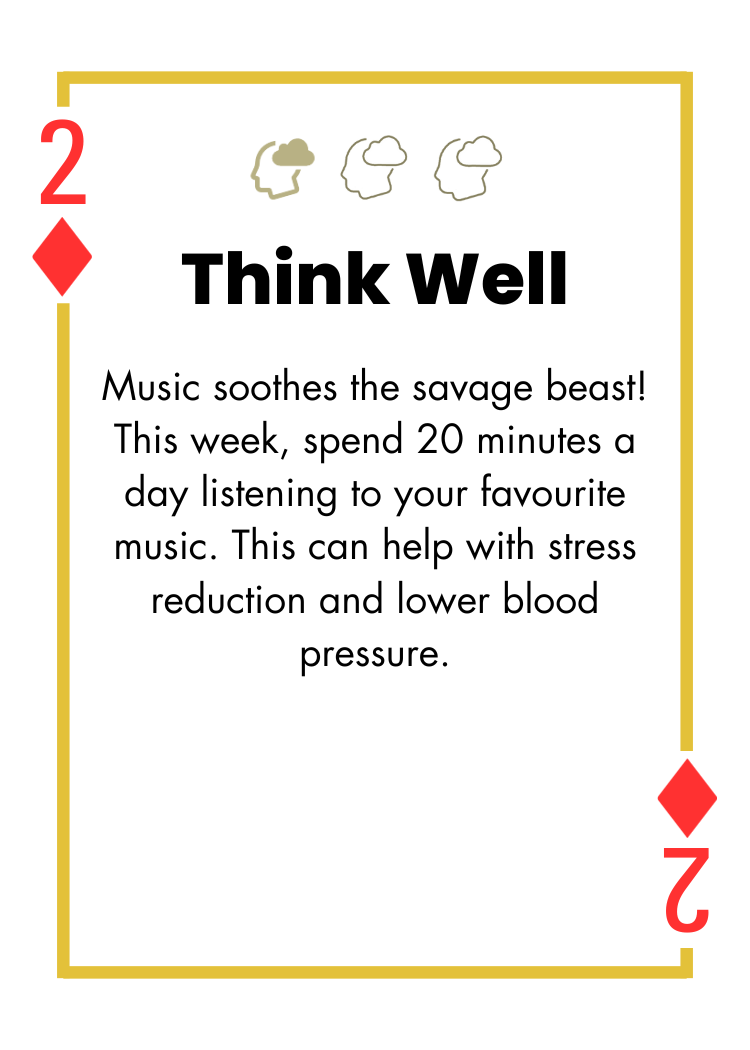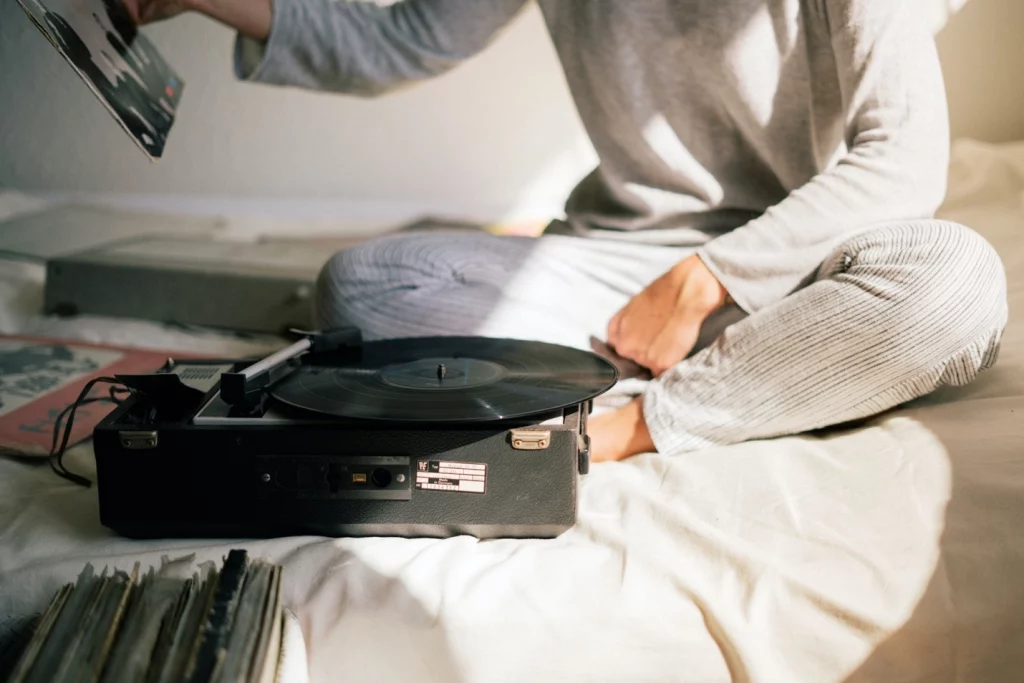2 of Diamonds - Music Therapy

Music therapy is a therapeutic approach that utilizes the natural mood enhancing ability of music to help people improve their mental health.

Passive music therapy strategies allow individuals to listen a live or recorded music whereas active methods involve individuals to sing, compose, or play an instrument. You might try creating a playlist of your choosing or alternatively sitting down and playing music for your friends. Additionally, you can tell/share stories about when you first heard the song or a good memory related to a specific song.
Natural sounds or any kind of music can help patients feel less anxious by lowering cortisol levels, blood pressure, and heart rate.
While the exact mechanism of action of music therapy on the brain is not yet completely known, the belief is it influences areas of the brain controlling the autonomous nervous system which controls body functions. Music may help regulate both the endocrine system and the autonomic nervous system.
https://www.health.harvard.edu/blog/why-is-music-good-for-the-brain-2020100721062
https://www.aarp.org/pri/topics/health/brain-health/brain-health-and-music/
Appello, D. A. . M. (2023). Music therapy. Salem Press Encyclopedia of Health.
Pingle, Y.P., and Ragha, L.K. (2023). An in-depth analysis of music structure and its effects on human body for music therapy. Multimedia Tools and Applications. https://doi-org.login.ezproxy.library.ualberta.ca/10.1007/s11042-023-17290-w
Andrew E. Budson, M. (2020, October 7). Why is music good for the brain?. Harvard Health. https://www.health.harvard.edu/blog/why-is-music-good-for-the-brain-2020100721062
Research, L. M. A., &; Research, C. R. A. (2023, October 18). 2020 AARP Music and brain health survey.https://www.aarp.org/pri/topics/health/brain-health/brain-health-and-music/


 See Other Cards!
See Other Cards!